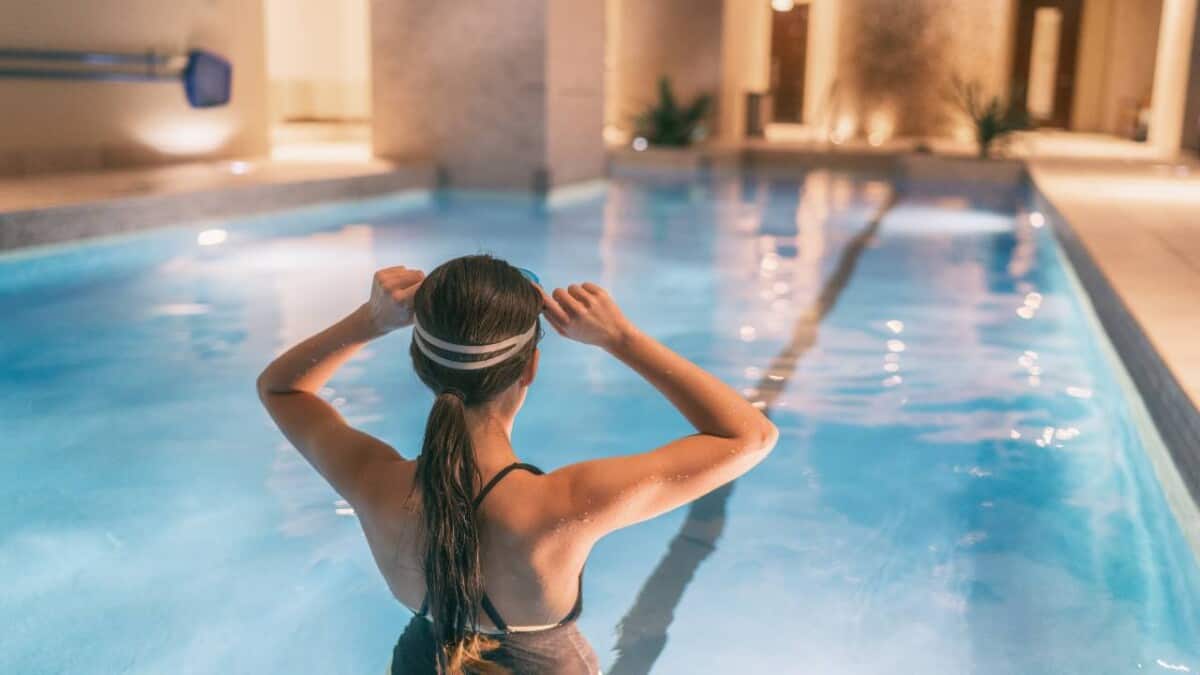Swimming is a popular sport and form of exercise that offers many benefits, including improved cardiovascular health, increased strength and endurance, and reduced stress.
One common swimming distance is 500 meters, which can be challenging for beginners and experienced swimmers alike. If you’re wondering what the average time to swim 500 meters is, you’re not alone.
Table of Contents
What Exactly is the Average Time to Swim 500m?

According to various sources, the average time to swim 500 meters is around 9-10 minutes for an adult swimmer. However, this can vary depending on a number of factors, including age, gender, fitness level, and swimming experience.
Beginners may take longer to complete the distance, while more experienced swimmers may be able to complete it in less time.
Whether you’re training for a triathlon, looking to improve your swimming skills, or simply curious about how your time compares to others, understanding the average time to swim 500 meters can be helpful. In the following sections, we’ll explore this topic in more detail and provide some tips for improving your swimming performance.
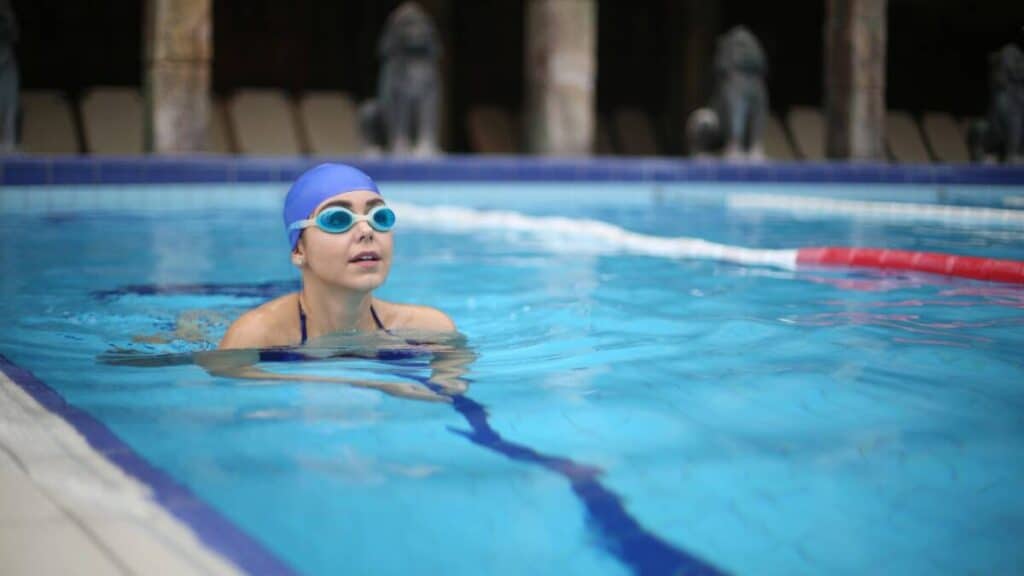
Average Time to Swim 500m
Swimming is a sport that requires both physical and mental stamina. The average time to swim 500m can vary depending on several factors, including:
- Swimming ability: Beginner swimmers will generally have a slower time than intermediate or advanced swimmers. As swimmers gain more experience and improve their technique, their times will naturally decrease.
- Age: Age can also impact swimming times. As people age, they may experience a decrease in muscle mass and endurance, which can lead to slower swimming times.
- Gender: On average, men tend to have faster swimming times than women due to differences in muscle mass and body composition.
- Training: Regular training and practice can significantly improve swimming times. Swimmers who train consistently and follow a structured training plan will generally have faster times than those who do not.
- Technique: Proper technique is essential for efficient swimming. Swimmers who have good technique will generally have faster times than those who do not.
For beginners and intermediate swimmers, the following table provides average 500m swim times based on age and gender:
| Age | Average Time to Swim 500m Male |
| 15 -20 | 00:12:25 |
| 20-25 | 00:10:50 |
| 25-30 | 00:11:20 |
| 30-35 | 00:11:45 |
| 35-40 | 00:12:10 |
| 40-45 | 00:12:35 |
| 45-50 | 00:14:10 |
| 50-55 | 00:14:40 |
| 55-60 | 00:15:15 |
| 60-65 | 00:15:55 |
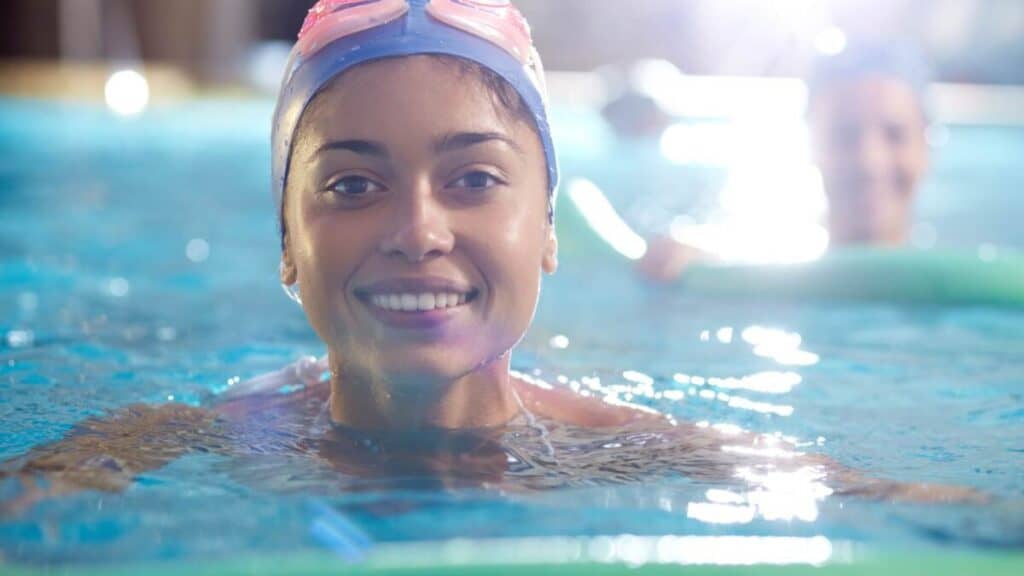
| Age | Average Time to Swim 500m Female |
| 15 -20 | 00:14:15 |
| 20-25 | 00:12:50 |
| 25-30 | 00:13:25 |
| 30-35 | 00:13:35 |
| 35-40 | 00:13:40 |
| 40-45 | 00:13:55 |
| 45-50 | 00:14:25 |
| 50-55 | 00:15:05 |
| 55-60 | 00:15:55 |
| 60-65 | 00:17:55 |
It is important to note that these times are only averages and can vary based on individual factors such as fitness level, body composition, and overall health. Additionally, swimmers should always consult with a healthcare professional before starting a new exercise program.
To discover the big data analysis for swimming times for your age and gender for all swimming distances including times for beginners and intermediate check out this article, average swimming times.
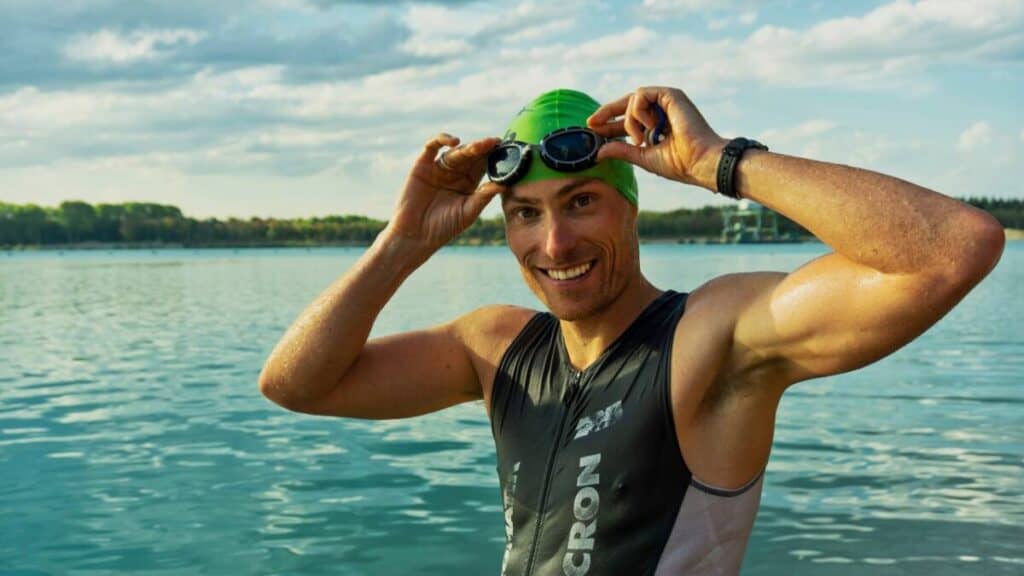
Training Strategies to Improve Your 500m Swim Time
Swimming 500m is a great goal for beginner and intermediate swimmers. However, improving your time can be a challenge. Here are some training strategies to help you improve your 500m swim time:
1. Consistent Training
Consistency is key when it comes to improving your swimming. Aim to swim at least 10K every month. This will help you build endurance and improve your overall swim time.
2. Technique
Improving your technique can help you swim faster and more efficiently. Focus on your arm stroke and try to minimize the use of your legs. Utilize drills such as 3 Strokes + 6 Kicks Freestyle to help improve your coordination and balance.
3. Interval Training
Interval training is a great way to improve your swim time. Try incorporating sets such as 300 swim/300 pull and 200 kick/200 drill. These sets will help you build endurance and improve your overall swim time.
4. Strength Training
Strength training can help improve your swim time by building muscle and improving your overall fitness level. Incorporate exercises such as pull-ups, push-ups, and squats into your workout routine to help improve your overall strength.
5. Nutrition
Nutrition is an important aspect of any training routine. Make sure you are fueling your body with the right nutrients to help improve your overall swim time. Incorporate foods such as lean protein, fruits, and vegetables into your diet to help improve your overall health and fitness level.
| Level | Average Time |
|---|---|
| Beginner | 12-15 minutes |
| Intermediate | 8-12 minutes |
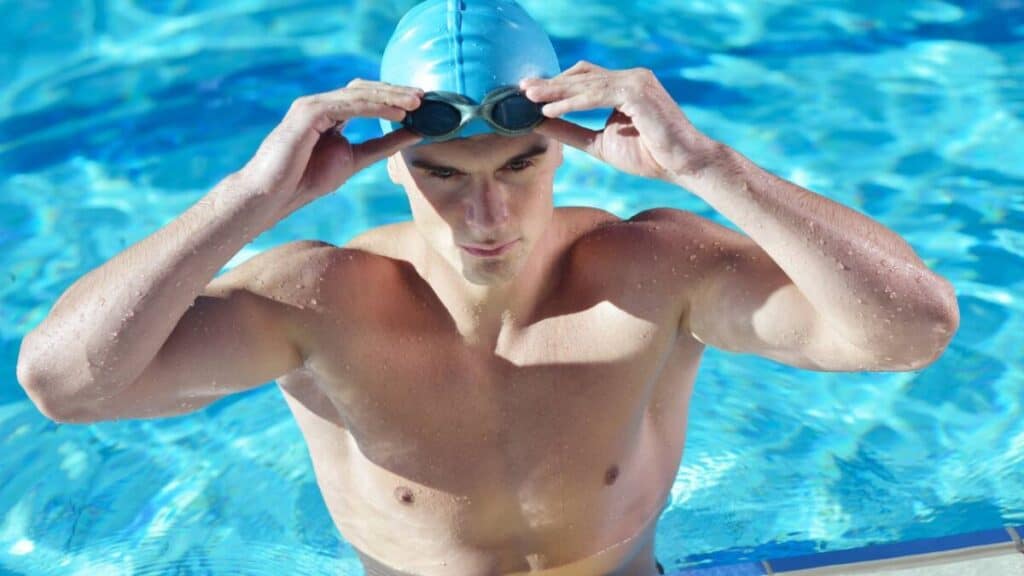
Tips for Measuring Your 500m Swim Time
Measuring your 500m swim time is a great way to track your progress and see improvements in your swimming abilities. Here are some tips to help you measure your 500m swim time accurately:
- Use a stopwatch or a swim watch to time your swim.
- Swim in a pool that is at least 25 meters long.
- Warm up properly before you start your timed swim.
- Swim at a comfortable pace that you can maintain for the entire 500m distance.
- Take note of your time at the 100m, 200m, 300m, 400m, and 500m marks.
- Record your time and use it to track your progress over time.
For beginner and intermediate swimmers, it can be helpful to have a target time to aim for. Here are some average 500m swim times for beginners and intermediate swimmers:
| Swimming Level | 500m Time |
|---|---|
| Beginner | 12:00 – 15:00 |
| Intermediate | 10:00 – 12:00 |
Remember, these are just average times and everyone’s abilities are different. Use them as a guide to help you set goals and track your progress.
Other Swimming Times you Might Like;

Average Time to Swim 500m Summary
Swimming 500m is a great workout and can be achieved by swimmers of all levels with practice and dedication. The average time for a man to swim 500m is 09:24, while for women, it is 10:22. However, these times can vary depending on age, ability, and training level.
If you are a beginner swimmer, it might take you around 10-14 minutes to swim 500m. With regular practice and training, you can improve your time and become an intermediate swimmer, which can take around 9 minutes to swim 500m.
| Swimming Level | Average Time to Swim 500m |
|---|---|
| Beginner | 10-14 minutes |
| Intermediate | 7-10 minutes |
It is important to note that there are many factors that can affect your swimming time, such as technique, endurance, and overall fitness level. Therefore, it is essential to work on improving these areas to achieve faster times.
Overall, swimming 500m is a great way to improve your fitness and can be achieved by swimmers of all levels with practice and dedication. So, get in the pool and start swimming!
